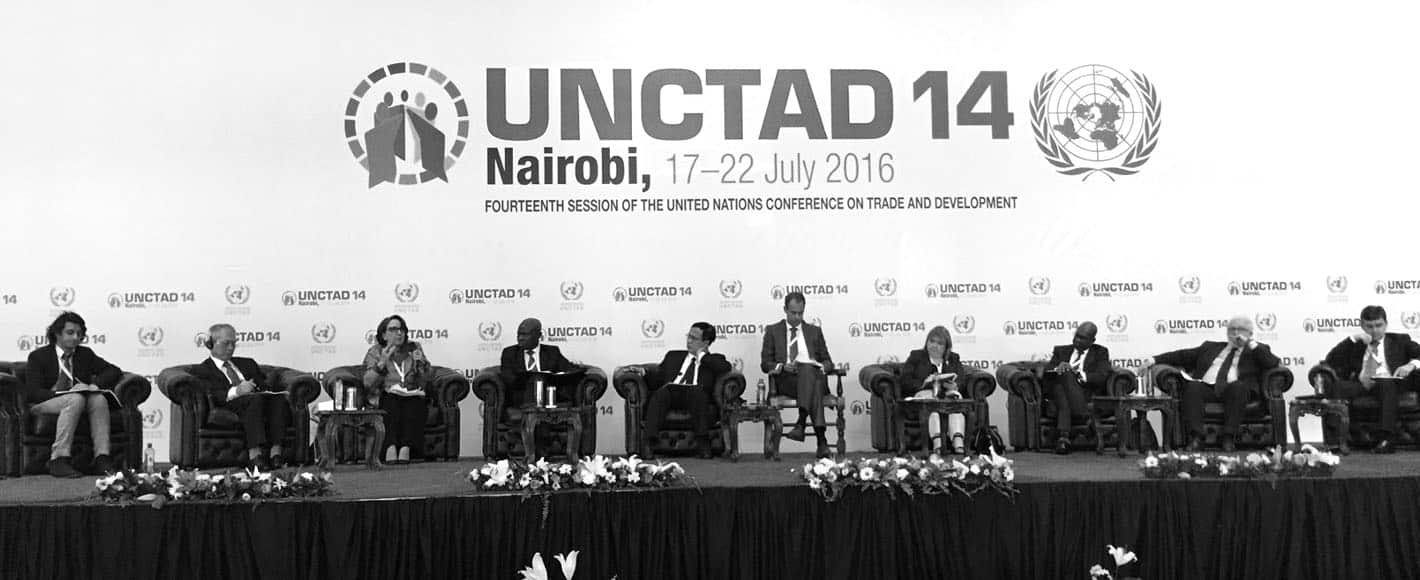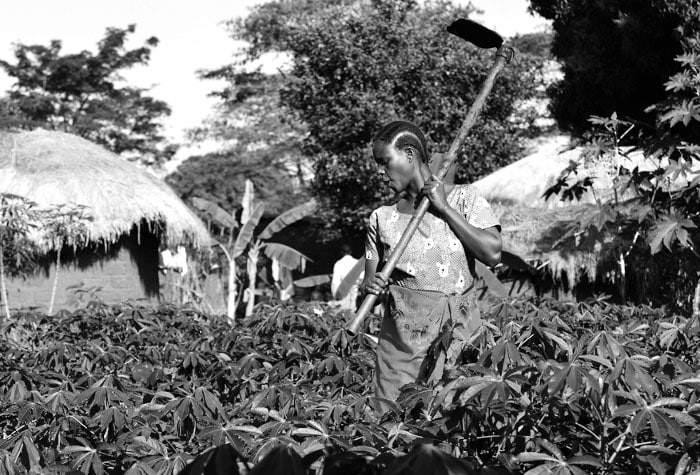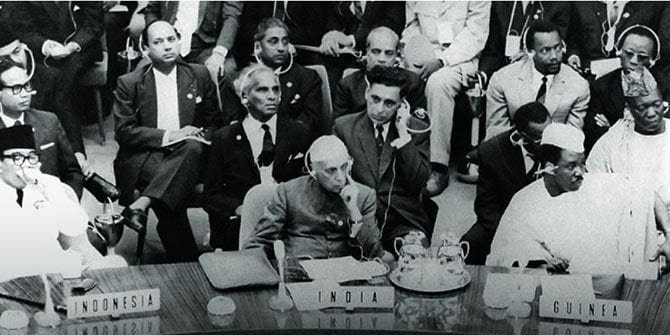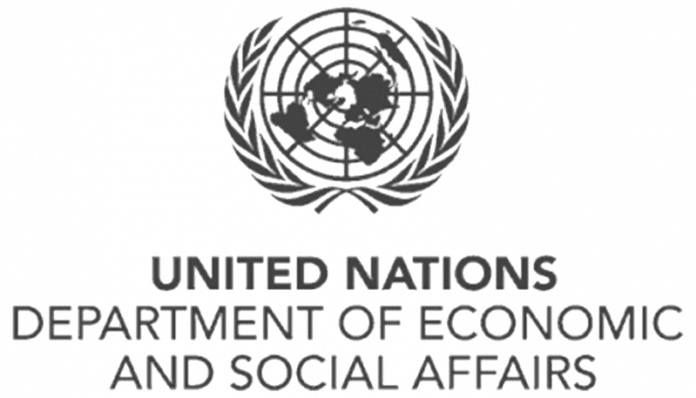Speech by Mwalimu Julius K Nyerere Chairman of the South Commission (South Center) At the Ministerial Conference of the United Nations Economic and Social Council (ECOSOC) Geneva: July 3, 1991
Dear Chairman; Dear Secretary General; Honorable Members of the United Nations Institutions and Departments; Honorable Representatives of Heads of State; Members of the Economic and Social Council (ECOSOC); Friends.
First of all, Mr. Chairman and Members of the Economic and Social Council (ECOSOC) I would like to thank you for the preparations, with support of the United Nations Conference on Trade and Development (UNCTAD) – this informal discussion of “Southern Challenges” – Report by the South Commission (South Center). Fellow members and I greatly appreciate the opportunity to be able to brainstorm with you. We hope that our work will help you as you make decisions about what the United Nations can do in the economic and social spheres to promote peace, security and justice in the world based on our Development Report.

Our report makes it very clear: the role of development in the South, lies in the South. It is a Report on the discussions, strategies and recommendations for action, which have been addressed in the first place by the people and governments of developing countries. If the South does not accept and face its responsibilities to develop its own nations and the South as a whole, there will be no development. For, neither the people nor their nations can be “developed” from the outside. All must be built from the roots of their cultures, and modernized in ways that will suit those cultures and national histories.
Except the South is part of the world. A world that is being reached everywhere by the great power of the North. Southern countries, and the South as a whole, are affected by what the North does, and what the North does not. Therefore the Report of the South Center is also issued to the countries and institutions of the North.
The United Nations, through its Charter, has invested in maintaining and promoting world peace and security, with its partner institutions. International trade and financial institutions are intended to increase global equality and prosperity for the benefit of all. This report is addressed to all these organizations in the world.
Dear Chairman. The discussions and recommendations of the entire Report are based on this definition of development. We say: development is about people, and it must be about people or it becomes meaningless. Progress is, I quote, “a process that enables human beings to realize their potential, build their self-confidence, and live a humane and fulfilling life”. It is a “movement away from political, economic and social repression”.
This definition has far-reaching policy implications in developing countries – and also for the North and the United Nations. It demands independence, both for nations and for individuals. Both national and international parties need democracy: that is, the freedom of the people to participate in decisions that affect their lives, which are implemented through democratic institutions and systems. The definition demands a recognition of international equality, and respect for the equality of freedom in the member states of the United Nations. And it needs discipline and enforcement of the rule of law – nationally and internationally, regardless of whether the offender is rich and powerful or poor who has not developed economically.
This definition has equal significance in the economic and social spheres. Political freedom cannot exist where the people or the nation is in a state of dependence on others to exist. At the very least, they must fight, forcing the opportunity to fight, to get rid of this situation.
Therefore, the Commission’s first strategic proposal for Southern countries is to focus all their economic and social policies on building National Self Reliance. Increase the use, and efficiency of national and natural resources for the benefit of their people. Their development plans, their health and education policies, their export and export policies, their investment priorities, and their budget allocations, must all be directed to achieving that – to build national self-reliance.

Fellow ECOSOC members, for developing nations, developing national self-reliance will never be easy. You will repeatedly demand difficult political decisions to ensure acceptable equality throughout the development process. You will need to focus on projects and production methods that will increase productivity for human and natural resources in large quantities and that use less scarce resources. A nation adopting a national self reliance strategy will fully utilize the power and accumulation of knowledge of its own people – men and women. It will use its own experts – with its latest technologies and cultural knowledge – before hiring foreign experts, and expanding the capacity of its own people, and increasing the number of its specialists through a deliberate education policy as its top priority. Capacity building in the fields of science and technology will be given special emphasis.
In doing so, you must seek equality, which is right for the developing nation, between market and national activities, – where nothing will benefit from the monopoly creation of a society on the basis of equality and freedom. This problem is discussed at length in this Report.
Obligation to do these things is the responsibility for developing nations. The fundamental question for the North, and for international business and financial institutions, is whether they will allow developing nations to make their own important and difficult decisions freely.
And will they support or hinder the process of building national self-reliance?
Will they stop earning billions of US dollars from the poorest Southern nations?
Will they consider redesigning the Reform Programs that are often forced on Southern nations on the basis of the impact they have on poor nations?
For example, do they think it is possible that wholesale privatization could not be the answer to every Southern nation, leaving each country to decide for itself its own issues – without restrictions?
Dear ECOSOC Chairperson: The second strategic proposal of the South Center is for Southern countries to deliberately build the capacity for self-reliance through their Union via increasing South South cooperation.
This Commission report has analyzed the opportunities, and some of the past efforts and training that can be a lesson in South South cooperation; offers suggestions on how best to work, and discusses how problems can be solved. Because solving them is important. Through South-South cooperation, bringing about self-reliance, development opportunities for many countries will be expanded; this will make all nations and the entire Southern region as a whole stronger.
In the context of the advancement of modern science and technology and the recent political changes in the North, the need for Southern countries to engage economically and socially is inevitable and is of paramount importance.
Almost all the developed nations of the North are already rich and powerful; Belgium’s GDP alone, as I am told, is roughly the same as the GDP of sub-Saharan Africa. Yet these developed nations see the need and importance of building a strong union between them. There is currently a Free Trade Agreement between the United States and Canada. Even European countries that were at war 45 years ago are cooperating in their economic and social policies; they will represent a large, prosperous and strong part of free trade by the end of 1992. Southern countries must learn from this example, and in doing so increase the use of Southern resources for the benefit of the people of the South.

The potential for South-South is now much higher than it was in the 1950s – when this policy was first adopted at the Bandung Conference – because the current southern states are very different. All are no longer just primary producers. Many have large and prosperous industrial sectors; and some are exporting manufactured and consumer goods, cars and even aircraft and machinery equipment in the North.
Students in some Southern countries go to well-developed special schools with specialized education and research institutes – which teach science and technology and other disciplines – where they are currently located in the South, and offer courses that directly address the conditions, aspirations and environment of developing nations.
Student exchanges would be one of the major extensions between individuals, business to business, non-governmental organizations within and across the entire Southern region. South-South Partnerships cannot be effective until different people and their organizations are involved. Southern governments must facilitate, and perhaps encourage such partnerships, but individuals and organizations must be free to make their own communications – and, in the laws of their countries, – and treaties. Joint production, communications, or service organizations; Southern college courses; – these useful endpoints for sharing are endless. All of this can strengthen the economy, and strengthen the South as a whole.
The Commission reiterates that the responsibility for taking action towards Joint Self Reliance lies within the South. But again, the truth compels the question; will the Northern countries, and international organizations, support or hinder this process? The report urges them to help; and it also describes the areas of urgency that needs to be acted upon first.
First and foremost among them is the complete elimination of the annual transfer of large resources from the poor of the South to the rich of the North which I have already mentioned. Let’s at least ensure that the resources of the South be available for the development of the South.
In its third basic strategic proposal, the Commission states that there is a lesson that the South should learn from Northern mechanisms. It is a lesson in Solidarity and unity.
The most important international dialogue for the future continues every day – at the Uruguay Round Conference about the Environment, at the United Nations Conference on Trade and Development (UNCTAD), the International Monetary Fund (IMF), the World Bank, and other major ones. Day after day, one or another developing country is negotiating with the North – about a loan, or trade sanctions, or something else. In all these discussions the North comes to the table ready with their agreed position – they have already set aside or resolved their internal differences before meeting the other side.
The commission claims that the Southern states also need to build strong ties between them. With the same problems that exist in the mutual dependence of the present world, they must collectively find their own position of dialogue, and work on it. They can do this at different levels: regional to regional problems, global to global problems.
Dear ECOSOC Chairman: there is no competition in this call for solidarity between the South. It occurs by recognizing the reality of three things. First, genuine dialogue leading to a peaceful solution can be done where there is respect and equality between parties involved. Second, that the South is economically weak and technologically behind, but for the most part, makes international dialogue without a unity among its countries. And third, that the North is strong, their nations are old and therefore stable, but they make up a large part of the collective dialogue.
I repeat: the responsibility for building solidarity in the South lies with the South. It is a daunting task considering the inevitable state of national power in young nations, and their administrative and technical shortcomings. But no one else will do it for them.
However, interference from others can make solidarity difficult to build and maintain; encouraging each other – and technical support when asked – can be very helpful. So once again, the Commission is asking the North and international institutions (including those controlled by the North) to help, or – if any country or institution cannot help, then it should not be an obstacle for the South.
The ultimate last call for Southern countries as they continue to develop is that they must place great importance in building and utilizing the potential of Science and Technology… This has happened and repeated in every paragraph of the Report. The growing importance of this sector in the world as we move into the 21st century is of great importance and emphasis; we have recognized the little attention given by developing nations over this matter in the past three decades. We make recommendations for actions to be taken by the South – and mention areas where the North could help in this important area.
Dear Chairman. I have not tried to summarize the Report today: my colleagues and I hope it will be read with due regard by the people and governments of the South, and the North, and the international institutions. Since there are many issues discussed in this Report – some with long and strong intentions – which I have not even mentioned. Some of it – but only some of it – there are questions such as the authenticity and the possibility of women’s contribution to the development of the South; questions of cultural development; of military affairs; and corruption. In the Report there are detailed recommendations derived from careful analysis.
And inevitably, I have not given thanks today where it deserves – and it was given in the Report. Great strides have been made in the South; there is great evidence that its people have not overcome their problems yet. We were, via our work, recognizing the value of development aid that we have received from many individuals, institutions, organizations, and some Northern governments. In the United Nations family; The United Nations Children’s Fund (UNICEF), the United Nations Conference on Trade and Development (UNCTAD), the International Labor Organization (ILO), the World Health Organization (WHO), and the International Fund for Agricultural Development (IFAD) is one of the many international organizations that have demonstrated a willingness to partner with us in development activities aimed at developing the people of the South.
My role today was to focus on three things. First, the responsibility for developing the South lies with the people of the South and that this has an impact on all aspects of the activity. Second, that the North holds true power in the world, and its actions affect the South, the North has a responsibility to support and not to hinder the South in its development efforts. And third, as part of the UN structure, the undeveloped South has the right to seek professional help from international organizations.
Friends: the fundamental divisions in the world today, and the ones that threaten world peace and future security, are divisions between North and South. Now that the troubling East-West division has been resolved, the Commission calls on the South and the North, and all international institutions, to work together to build a world where, and I quote from the Report – “Peace, security and dignity should be the right from the birth of all people and societies; where all can benefit from scientific advancement that can satisfy the needs of everyone not just the few;
Thank you!
For more Nyerere speeches click here!


































